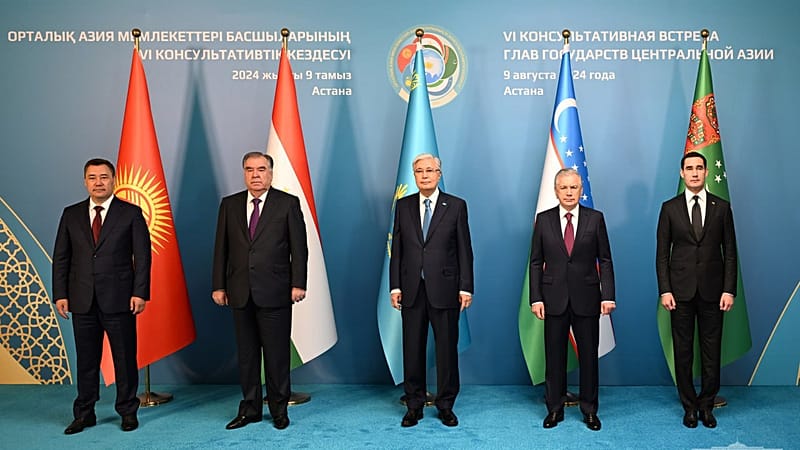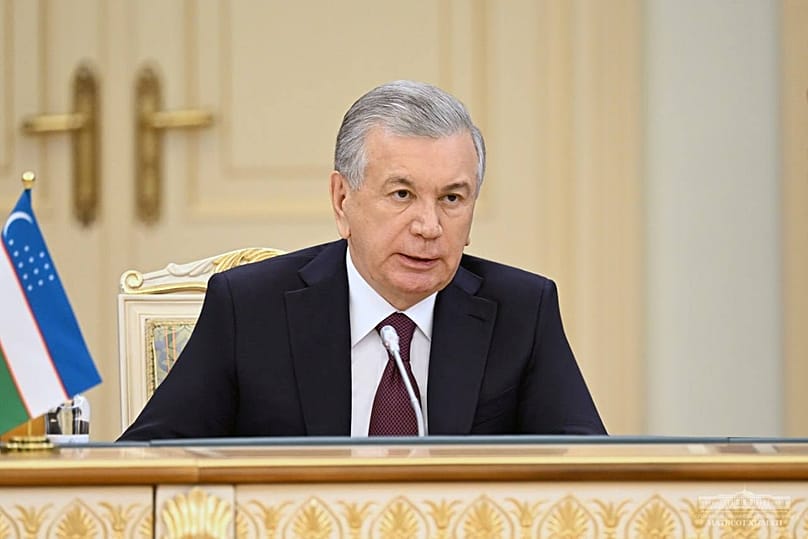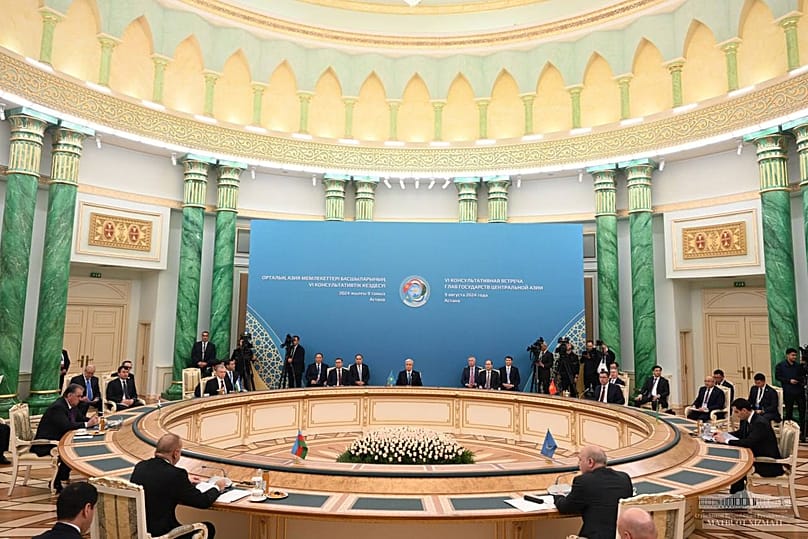Central Asia leaders to meet in Tashkent for regional consultative summit

Central Asian leaders will gather in Tashkent this weekend for the Seventh Consultative Meeting of Heads of State, with plans to adopt a package of multilateral agreements to deepen regional cooperation.
The summit brings together the leaders of Uzbekistan, Kazakhstan, Kyrgyzstan, Tajikistan and Turkmenistan, with Azerbaijan participating as a guest of honour for the third consecutive year.
The leaders will discuss ways to advance joint projects in priority sectors and exchange views on key regional and international issues, as outlined in the agenda.
Essential mechanism for building trust
Uzbekistan's President Shavkat Mirziyoyev described the consultative meetings as an essential mechanism for building trust and a "vivid symbol" of the new Central Asia in an article published in national media.
"For the first time in many years, an atmosphere of mutual understanding is being formed in the region," Mirziyoyev wrote, adding that the Tashkent summit "marks a new milestone in building a stable, interconnected, and prosperous Central Asia."
Regional cooperation has delivered concrete results, including the settlement of long-standing border disputes through a trilateral treaty between Uzbekistan, Kyrgyzstan and Tajikistan, and the Khujand Declaration.
Breakthrough agreements on water resources include joint implementation of the Kambarata-1 hydropower plant, cooperation on the Zarafshan river, enhanced coordination over the Bakhri Tochik reservoir, and agreements on the rational use of the Amudarya with Turkmenistan.
Mirziyoyev said peace and prosperity in the region are impossible without integrating Afghanistan into regional economic processes, noting that its stability directly affects security across Central Asia.
New stage of regional integration
Economic cooperation has expanded rapidly. Uzbekistan's trade with its neighbours grew from €2.8 billion in 2017 to €6 billion in 2024.
Across Central Asia, aggregate GDP increased 2.5 times to €450 billion, intra-regional trade doubled to nearly €10 billion, and joint enterprises in Uzbekistan now exceed 1,800. Industrial growth in the region averages 6 per cent per year, twice the global average.
Laziz Kudratov, Uzbekistan's Minister of Investment, Industry and Trade, said the dialogue will give "a constructive impetus to the integration of Central Asia."
Uzbekistan's trade turnover with Kazakhstan is approaching €3.5 billion, with Kyrgyzstan €603 million, Tajikistan €500 million and Turkmenistan €1 billion, double the figure from five years ago.
Cooperation with Azerbaijan is expanding rapidly, with a joint investment portfolio now exceeding €4.2 billion. Bilateral trade between Uzbekistan and Azerbaijan reached €275 million in January-September 2025, an 87.5 per cent increase on the previous year. Transit shipments exceeded 1.3 million tonnes in 2024.
A 2025-2027 Action Plan for Industrial Cooperation and new border trade zones are expected to drive further growth.
With Central Asia's population surpassing 80 million and expected to reach 100 million by 2050, Mirziyoyev stressed the importance of turning youth potential into a driver of development.
Origins of the format
The consultative meeting format originated from Mirziyoyev's initiative announced at the UN General Assembly in 2017, proposing regular high-level consultations among Central Asian states. The inaugural meeting took place in Astana in 2018.
Assyl Tuleubekov, Associate Professor at Maqsut Narikbayev University in Astana, said the meetings "have become a positive tradition, showing that Central Asian countries are increasingly united in addressing global and regional challenges."
The gatherings help coordinate efforts on transboundary water use, energy supply and migration, while fostering dialogue on security amid the evolving situation in Afghanistan, he said.
Azerbaijan's President Ilham Aliyev told the Uzbekistan press agency the meeting will be "a significant stage in fostering the centuries-old friendship between our brotherly peoples and expanding multi-level cooperation in the political, economic, transport, investment, energy, cultural and humanitarian spheres, and in the field of digital transformation."
He noted that over the past three years, Central Asian heads of state have made nearly 30 visits to Azerbaijan, while he has visited the countries 13 times.
Azerbaijan's engagement strengthens regional connectivity, particularly through the Middle Corridor linking Central Asia with Europe.



